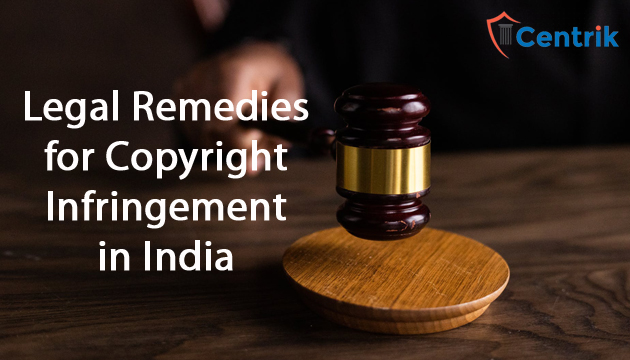
Status as on- 17/10/2021
Introduction
When a person creates a literary, musical, dramatical, scientific, or artistic work, he or she is the author of that work and is free to decide on its use. The author of such a work can control the destiny of the work. And such work can be protected by copyright laws.
Copyright means the exclusive right to do or authorize others to do certain acts in relation tooriginal, literary, dramatic, musical and artistic works, cinematography film, and sound recordings.
Thus, copyright is the legal protection extended to the author of the rights in an original work that he can create. Oxford English Dictionary defines the term “copyright” as an exclusive right given by law for a certain term of years to an author, composer, etc. or his assignee to print, publish and sell copies of his original work.
Statutory Position of Copyright Protection in India
In India, the Copyright Act, 1957 contained the law of copyright. Section 13 of the act deals with the subject matter of copyright.
According to sec 13(1) – copyright provides legal rights in the following three classes of works:
- Original literary, dramatic, musical and artistic works;
- Cinematograph film; and
- Sound recording.
Section 14 of Copyright defines copyright “As the exclusive right to do or authorize others to do certain acts in relation to first literary, dramatic, or musical work, second artistic work, third cinematography film, the fourth sound recording”.
Legal Remedies for Infringement of Copyright
When a person enjoys exclusive rights during the term of registration of design without taking authorization and license from the registered owner of the design is committing the act of infringement. Make use of copyrighted work without the consent or permission of the copyright holder is considered a copyright infringement.
However, the copyright owner has both civil and criminal remedies against the person who infringes or violate their copyrights. Section 55 of the Copyright Act, 1957 specifies civil remedies by way of injunction,damages and accounts of profits.
Whereas section 63 of the Act provides criminal remedies. Any person who knowingly infringes shall be punishable with imprisonment for not less than 6 months and up to 3 years, a minimum fine of Rs. 50,000 which may extend to Rs.2,00,000, seizure of infringing goods and delivering the infringed goods to the real owner of the copyright.
Conclusion-
Copyright gives an exclusive right to do or authorize others to do certain acts in relation to original, literary, dramatic, musical and artistic works, cinematography film, and sound recordings. The abovementioned provisions of The Copyright Act, 1957 provides both civil and criminal remedies. Any person who commits the act of infringement shall be punishable with both civil and criminal punishment.
Disclaimer: The above article is based on the personal interpretation of the related orders and laws. The readers are expected to take expert opinions before relying upon the article. For more information, please contact us at rera@centrik.in




 join For Updates
join For Updates